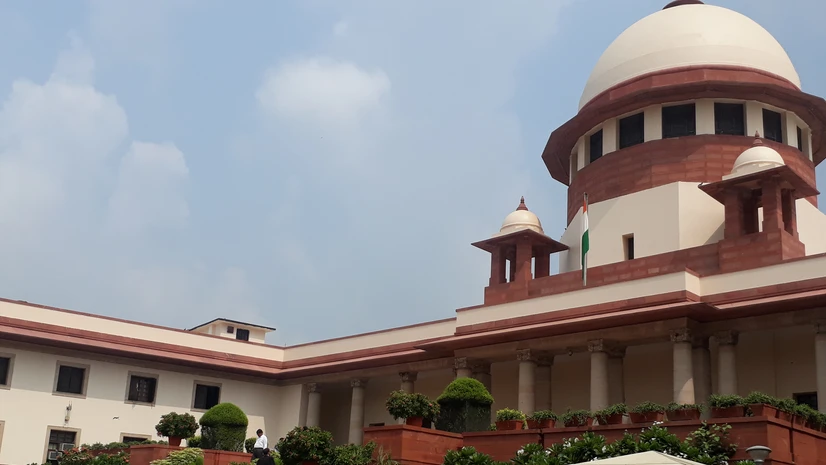The Supreme Court on Tuesday deferred the consideration of the Centre's plea for the withdrawal of an oral undertaking made to the court in November last year pledging to maintain the status quo on the release of genetically modified (GM) mustard.
The undertaking was made before a bench headed by Justice Dinesh Maheshwari who has since retired.
The application for the same by the Centre will now be considered on 26 September.
"The seeds were already sown in eight out of ten sites. When this court asked us not to take precipitative action in view of the matter being listed in the following week for final hearing, I gave this assurance. The next sowing season was also one year away. This undertaking was made under these circumstances. We are at the last phase of research. This is not a commercial release, but environmental release," said Additional Solicitor-General Aishwarya Bhati, appearing for the Centre.
Countering this argument, Senior Advocate Prashant Bhushan, appearing for petitioner Aruna Rodrigues, said that environmental release means release into the environment. "If they want to do any test, they can do it in greenhouse conditions so that it is not released into the environment and contaminate other non-GM crops. The technical expert committee constituted by this court said, in no uncertain terms, that no open-field trial should be allowed unless the whole regulatory system, which is in shambles, is fixed first," he said.
Also Read
"If your Lordships discharge us from our undertaking, we can proceed to sow the mustard seeds at the ten sites initially proposed and carry out the research. This court, while deciding this matter, will also have the benefit of our reports. Alternatively, at least allow us to sow the seeds in the eight sites that we studied last year and place our report before this court. We are keen on not losing this season," Bhati said.
The bench of Justices BV Nagarathna and Ujjal Bhuyan, however, did not entertain this and said, "One year here or there does not matter. This is only one season. Next year there will be another season. However, environmental harm cannot be reversed. We will have to hear the application and consider it. List on 26 September. Let us start on Tuesday. If it spills over, we will continue hearing on Wednesday. Please do not seek any adjournment," Justice Nagarathna said.
The Supreme Court had on 3 November directed for maintaining status quo on the decision of the Genetic Engineering Appraisal Committee (GEAC) allowing the environmental release of genetically modified mustard for seed production and testing.
Talking about the conditional approval that pertains to an environmental release before the commercial release and is subject to necessary regulatory and technical oversight, the Centre had told the court that the approval had been granted after following detailed and exhaustive procedures in law and after considering biosafety data and rigorous scrutiny over 12 years.
The Centre said the environmental release of GM mustard was granted for limited purposes such as developing new parental lines and hybrids under the supervision of the Indian Council of Agricultural Research (ICAR) and for undertaking seed production of GM mustard and its testing in accordance with guidelines of the Indian Council for Agricultural Research.
The Centre has objected to the alleged opposing final reports submitted by the Technical Committee of Experts formed under directions of the Supreme Court in 2012.
It said India imported and consumed oil derived from GM crops, and opposition to such technology based on unfounded fears was hurting farmers, consumers and industry.
On 25 October last year, the Genetic Engineering Appraisal Committee (GEAC) under the Union environment ministry approved the environmental release of transgenic mustard hybrid DMH-11 and the parental lines containing barnase, barstar and bar genes so they can be used for developing new hybrids.
The apex court is hearing separate pleas by activist Aruna Rodrigues and non-governmental organisation Gene Campaign. They are seeking a moratorium on the release of any genetically modified organisms (GMOs) until there is a comprehensive, transparent and rigorous bio-safety protocol in the public domain, conducted by independent expert bodies.

)
